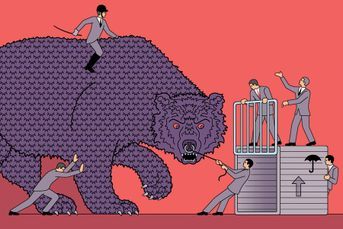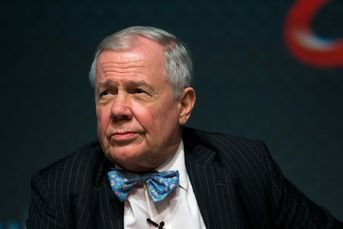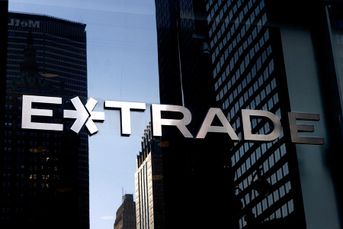To invest during a trade war, think local and think small
Small-company stocks are one place to shelter from potential hostilities.
How do you invest for a trade war? The current consensus, at least as measured by ETF returns, is to think U.S. and to think small.
President Donald J. Trump fired the first salvo on trade March 9 when he announced $25 billion in tariffs on steel and aluminum. He has since threatened another $150 billion in tariffs against China. The Standard & Poor’s 500 has fallen 4.8% since then, according to Morningstar Inc.
But some exchange-traded funds have held up much better than the S&P 500.
One category that stands out: small-company ETFs, which have fallen 2.38% since the first shots in the trade war rang out. Pacer US Small Cap Cash Cows 100 ETF (CALF) is the top-performing small-cap ETF since then, gaining 0.37% As its name implies, it invests in small companies with lots of free cash flow.
“Small caps underperformed last year, and were major beneficiaries of the tax overhaul,” said Sam Stovall, chief investment strategist for U.S. equities at CFRA. “Most importantly, they tend to be more domestically focused and therefore less hindered by tariffs.”
Another strategy is to avoid sectors that involve trade. That’s a tricky proposition, since about half the earnings of S&P 500 companies come from abroad.
One sector to consider: utilities, because it’s hard to import electricity. PowerShares DWA Utilities Momentum Portfolio (PUI), for example, has gained 4.23% since the trade wars started.
Another sector that doesn’t depend on trade: real estate. Nushares Short-Term REIT ETF (NURE), for example, has gained 3.37% since March 9.
Trade wars aren’t bad for all sectors, and some areas have been untouched by the threat. For example, oil and gas ETFs have risen sharply since Mr. Trump announced tariffs. Part of the reason is that the International Energy Agency warned that the oil industry was not investing enough in new supply. That was enough to boost the price of oil — and the prices of energy ETFs. United States Brent Oil ETF (BNO), for example, has gained 5.89% since the start of the trade war threats.
Some international funds that specialize in the oil patch have fared well, too. The iShares MSCI Qatar ETF (QAT) has jumped 8.11% since the start of the trade wars, and iShares MSCI Saudi Arabia (KSA) is up 7.01%. The Wisdom Tree Middle East Dividend ETF (GULF) has risen 3.40%.
Finally, at least one area has benefitted from the talk of a trade war. Last year, Mr. Trump announced tariffs on Canadian timber — which pushed up lumber prices in the U.S. The iShares Global Timber and Forestry ETF (WOOD) has grown 3.68%. And the Spirited Funds/ETFMG Whisky and Spirits ETF (WSKY) has gained 2.50% on threats of European tariffs on Kentucky bourbon.
Whether it’s wise to base your investments on trade policy is another matter. The stock market rallied strongly Monday, something that Mr. Stovall chalks up to hopes that cooler heads will prevail.
Learn more about reprints and licensing for this article.








